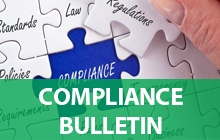When you're gone, you want all your assets to go to your heirs and the people you love and want to help. The problem is, in Canada it doesn't always work that way. When you die, unless you leave everything to your spouse, the tax laws deem that you've sold your assets. Your estate may have to pay taxes on capital gains, reducing the amount of money that goes to your loved ones.
Plan Carefully
Protecting your estate requires careful planning and in-depth knowledge of family, estate and income tax laws so it is important to enlist the help of a lawyer as well as an independent advisor. They can help you:
1. Identify your goals;
2. Identify strategies to help reduce estate taxes;
3. Make charitable bequests;
4. Update your will and power of attorney.
Identify Your Goals: Are you most concerned about supporting your family? Leaving money for your grandchildren's education? Minimizing taxes? The answers to these questions will determine how you set up your will and arrange your financial affairs.
Reducing Estate Taxes and Probate Fees:
Your independent advisor can help identify your options for reducing taxes and probate fees. Some strategies include:
- Keep certain assets out of your estate. As long as you have named a beneficiary, life insurance policies and RRSPs/RRIFs won't be considered part of your estate for probate fees.
- Buy life insurance to cover estate taxes. Life insurance can provide income for your dependents, pay for your grandchildren's education, pay for final expenses and offset capital gains taxes.
- Consider setting up a spousal or family trust to avoid capital gains taxes.
- Include tax-oriented clauses in your will, such as asking your estate to make an RRSP contribution to your spouse's RRSP for that year if permitted. This will help reduce your final income and tax bill.
Giving to Charity: Charitable bequests can provide significant tax savings for your estate. But instead of selling your assets and making a cash donation to your favourite charity, consider taking out a life insurance policy or donating securities directly to avoid capital gains tax. Seek professional advice. There are many important details that must be considered.
Make a Will and Review it Regularly: A legal Will outlines how you would like your assets to be distributed when you die. It also designates who you want to be the executor of your estate and can outline such important considerations as burial requests and who you would like to be the guardian of your children. If you don't have a valid Will, provincial law or family law will determine how your assets will be distributed. Once you have a Will, review it every two to three years to make sure it reflects your current wishes.
Power of Attorney: A Power of Attorney is a legal document that outlines how you would like your financial assets handled if you become mentally or physically incapacitated. Keep your Power of Attorney with your will and review it periodically.
As you can see, estate planning is not a simple process. There are numerous things to consider, especially if you have substantial assets or unique circumstances, such as you own a business and need to plan for its succession. That's why a good lawyer and Insurance Advisor are worth their weight in gold.
Contact your Advisor today to learn more about Leaving a Legacy for your heirs.










